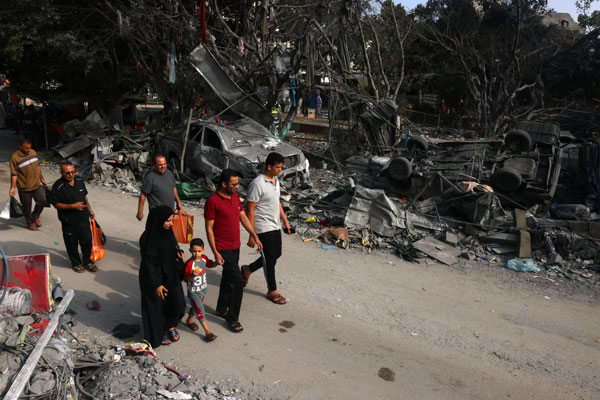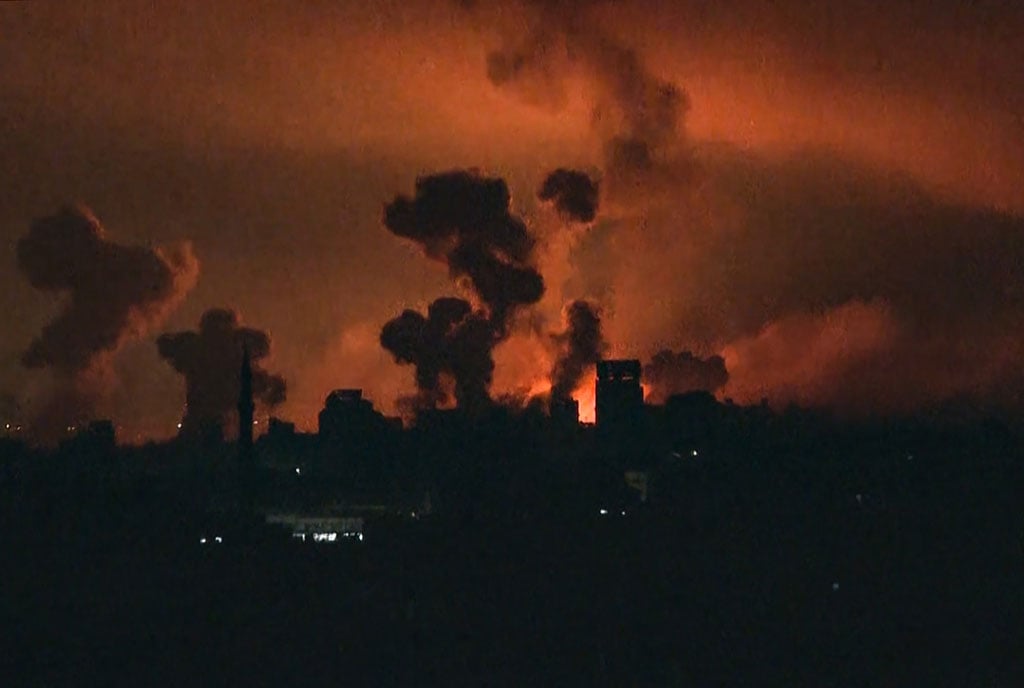Latest developments in the Hamas-Israel war

People walk past wrecked cars in the aftermath of Israeli bombing in Rafah in the southern Gaza Strip on October 28, 2023.PHOTO / AFP
What you need to know:
- Since the October 7 attack, the health ministry in the Hamas-run Gaza Strip says more than 7,300 Palestinians have been killed by Israel's relentless retaliatory bombardments, mainly civilians and many of them children.
Fighting in the Gaza Strip raged for a 22nd day Saturday after Hamas militants launched a surprise attack on Israel, killing at least 1,400 people, mostly civilians, according to Israeli officials.
Since the October 7 attack, the health ministry in the Hamas-run Gaza Strip says more than 7,300 Palestinians have been killed by Israel's relentless retaliatory bombardments, mainly civilians and many of them children.
Here are four key developments from the past 24 hours:
Israeli strikes intensify
Israel pounded Gaza with air and artillery strikes on Saturday after an intense night of attacks when the army said 150 "underground targets" were hit.
"Terror tunnels, underground combat spaces and additional underground infrastructure" were struck, the military said, adding that "several Hamas terrorists were killed".
No official toll was immediately given, but a Gaza civil defence official told AFP a "large number" were feared dead in one of the most intense nights of attacks in the war.
A thick haze of smoke covered Gaza and southern Israel after the night of heavy bombardment, according to AFP correspondents.
More air raids and artillery shelling were reported after daybreak but they were less intense than overnight.
This comes after Israeli military spokesman Daniel Hagari said Friday night that the army was "extending" its ground operations after two straight nights of tank incursions.
Hamas's armed wing on Friday night said it was fighting Israeli troops in northern Gaza's Beit Hanoun and the more central east Bureij.
Communications cut
Internet access and the phone network were completely cut across the Gaza Strip on Friday ahead of the intensification in Israeli operations.
Authorities in Gaza accused Israel of taking the measure "to perpetrate massacres with bloody retaliatory strikes from the air, land and sea".
AFP journalists in Gaza confirmed they were only able to communicate in limited areas where they could connect to Israeli networks across the border.
The Palestinian Red Crescent said the "disruption affects the central emergency number 101 and hinders the arrival of ambulance vehicles to the wounded" in the ongoing strikes.
Humanitarian truce call
The UN General Assembly on Friday called by a large majority for an "immediate humanitarian truce" in Gaza.
The non-binding resolution, criticised by Israel and the United States for failing to mention Hamas, received 120 votes in favour, 14 against and 45 abstentions from UN members.
Hamas welcomed the General Assembly call. Israel's ambassador to the world body, Gilad Erdan, called it an "infamy".
'Avalanche of human suffering'
UN chief Antonio Guterres warned Friday that Gaza faces "an unprecedented avalanche of human suffering" due to lack of food, water and power during Israeli bombing in response to the Hamas attack.
"I repeat my call for a humanitarian ceasefire, the unconditional release of all hostages, and the delivery of life-saving supplies," Guterres said.
Before the war, about 500 trucks a day rolled into Gaza to bring in supplies, but in recent days the average is down to only 12, which enter from the Rafah border crossing with Egypt, he said.





